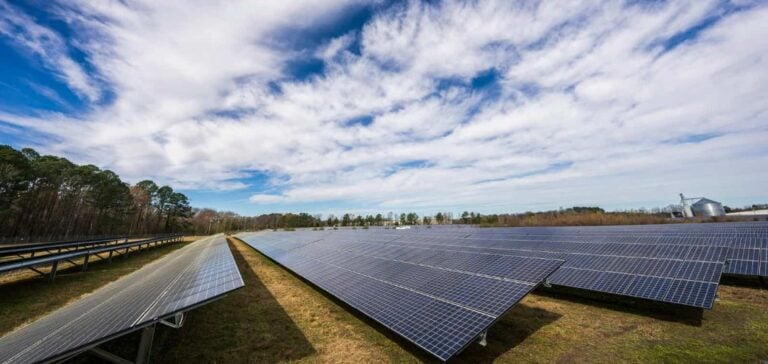SolarBank Corporation (NASDAQ: SUUN) confirmed the sale of four solar projects located in New York State to Qcells, a subsidiary of Hanwha Solutions. These projects, with a combined capacity of 25.577 MW, will be constructed by SolarBank under an engineering, procurement, and construction (EPC) contract included in the transaction, valued at USD 49.5 million.
Transaction aligned with national priorities
This announcement aligns with the United States’ efforts to reduce reliance on foreign supply chains in the renewable energy sector. The modules used for these projects will be manufactured locally, reflecting industrial policy favoring strengthened domestic production.
Qcells’ investment, estimated at nearly USD 2.8 billion to support the solar supply chain in the United States, underscores a strategic shift in the solar industry. This project falls under national priorities aimed at securing critical supply chains and accelerating the energy transition.
Economic model and local prospects
The projects will be developed as community solar plants, allowing local subscribers, including individuals and businesses, to save on their energy bills without needing to install panels. This economic model supports energy inclusion policies and the adoption of low-carbon solutions in communities.
Additionally, the projects are expected to qualify for incentives from the New York State Energy Research and Development Authority (NYSERDA) through the NY-Sun program, a key mechanism for renewable energy development in the state.
Political and industrial impacts
This transaction highlights the growing interaction between U.S. energy policy and private initiatives. The partnership between SolarBank and Qcells reflects strategic alignment with government priorities aimed at onshoring solar equipment manufacturing. These initiatives seek to reduce vulnerabilities related to imports while boosting investment in the domestic industry.
The implementation of these projects will also generate local economic opportunities, creating jobs in construction and maintenance while strengthening regional energy autonomy.






















